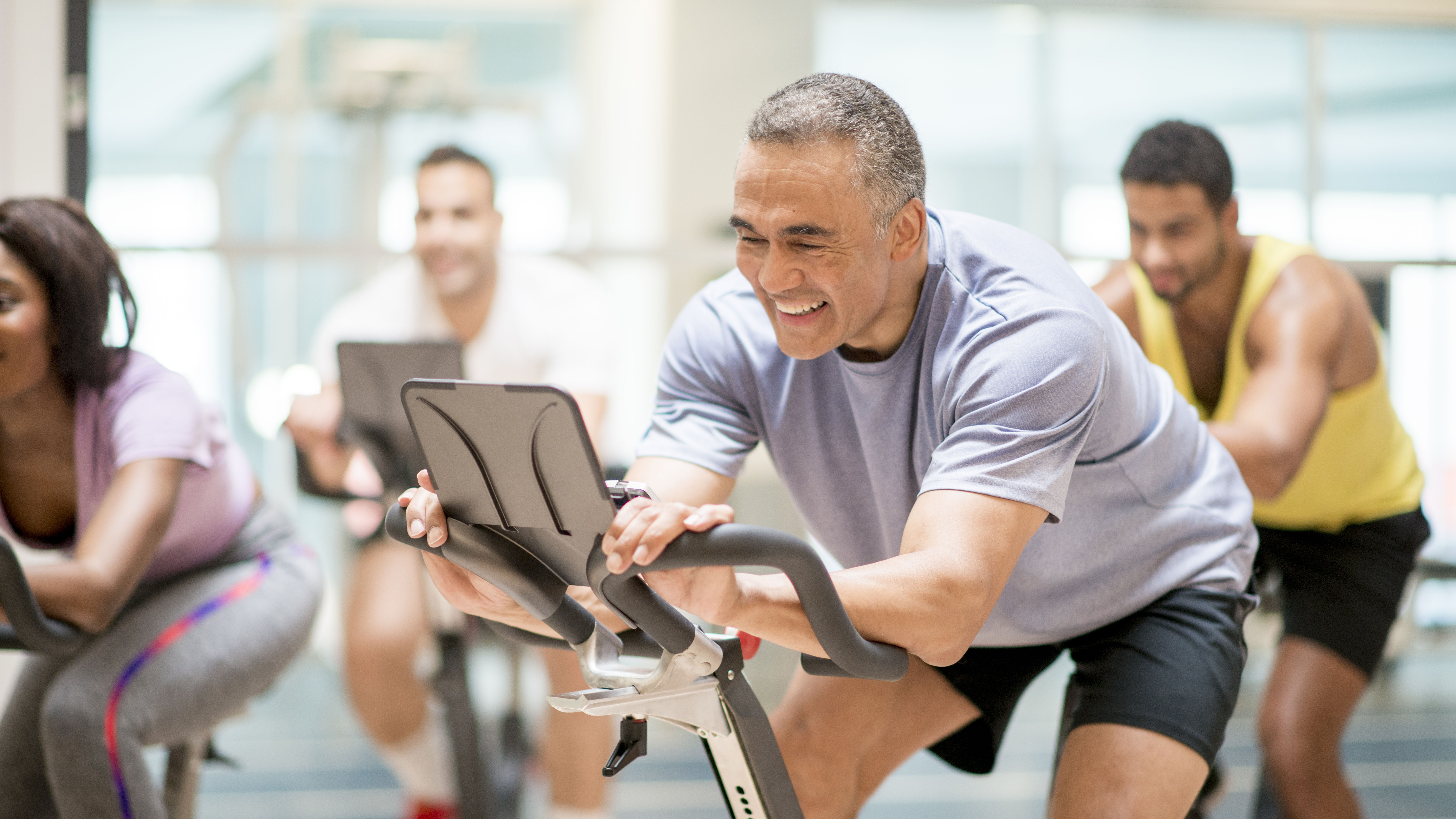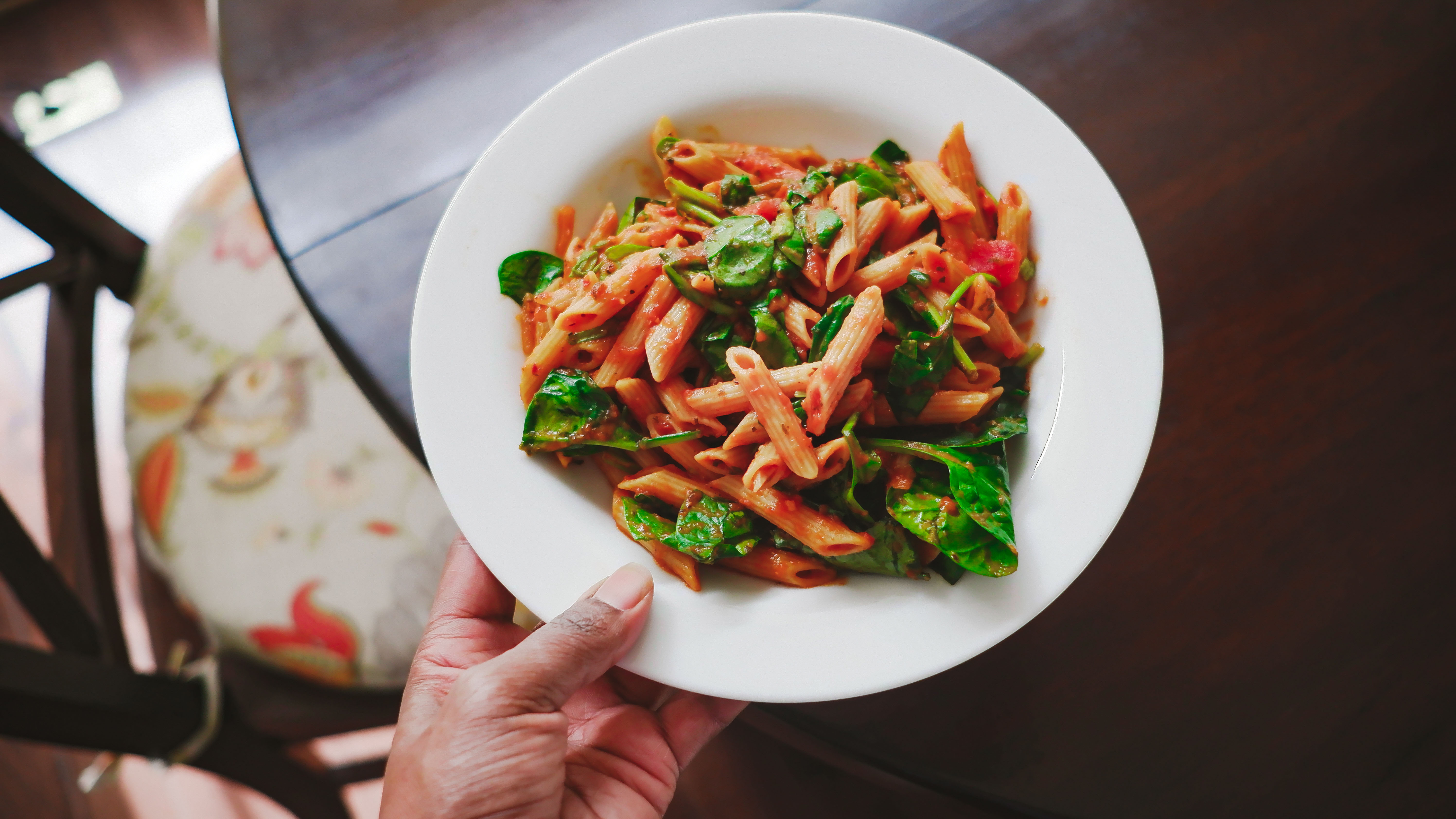Does cardio kill gains? Here’s what the science says
An exercise physiologist separates fact from fiction to answer, does cardio kill gains?

Does cardio kill gains? There’s a common belief in the fitness community that cardio workouts inhibit “gains” or muscle growth, and research shows conflicting evidence in terms of the potential for endurance exercise or cardio to inhibit the muscular adaptations made by resistance training.
To help make sense of the research and science about the possible downsides of concurrent training – doing cardio and weight training together in one workout session – we spoke with Heather Hart, an ACSM-certified exercise physiologist, RRCA-certified running coach, and co-owner of Hart Strength and Endurance Coaching.
So, whether you like running, cycling, or using one of the best rowing machines to get a good sweat, keep reading to learn how to maximize your results in the gym.
Does Cardio Inhibit Muscle Gains?
Hart says that the evidence is mixed when it comes to whether or not cardio can impede muscular adaptations to weightlifting and other strength training workouts.
“Numerous studies have shown that concurrent training (cardio and strength training together) may result in decrements in strength, power, and muscular hypertrophy, while other studies show that adding cardio to resistance training may not inhibit strength or muscular gains,” says Hart.
Heather Hart is full time running coach and exercise physiologist. She achieved a Bachelor of Science in Exercise & Sports Science from Coastal Carolina University and has been an ACSM Certified Exercise Physiologist since 2011. She is also a RRCA Certified Running Coach (Level 1) and UESCA Certified Ultrarunning Coach.
For example, a recent review in Sports Medicine of studies examining the potential deleterious effects of concurrent training on muscle and strength adaptations concluded that concurrent training is only detrimental to explosive strength, but not overall muscle hypertrophy or strength development.
And a 2018 review published in the Sports journal found that certain types of cardio exercises – such as HIIT – seem to display less or no negative effect on resistance training-induced muscle adaptations.
Get the world’s most fascinating discoveries delivered straight to your inbox.

Why might cardio inhibit increases in muscle strength and size?
The potential mechanisms underlying why cardio exercise may counteract some of your hard work in the gym are explained by Hart. She says the first potential reason is that cardio can interfere with the molecular pathways responsible for adaptations to strength training.
“Our bodies have two pathways for cell metabolism and growth when it comes to making adaptations to exercise: the mTOR pathway, which is usually activated during anaerobic exercise like resistance training, and the AMPK pathway, which is usually activated during aerobic-based exercise (cardio),” says Hart. “With concurrent training, the AMPK pathway may downregulate, or inhibit, the mTOR pathway. The downregulation of mTOR could inhibit protein synthesis, or the process in which our bodies build muscle.”
Hart says this means that combining aerobic or cardio exercise and strength training in the same exercise session or too closely together may eventually yield diminished returns from your resistance training, including inhibiting muscle hypertrophy.

“Another theory is that by combining cardio and resistance training together, individuals are fatiguing themselves and depleting energy stores to the extent that they aren’t lifting at the same volume or frequency that they would if they were resistance training alone; therefore, inhibiting their potential gains,” syas Hart.
Essentially, if you’re trying to do too much in one workout session or without adequate rest between workouts, especially in the absence of taking in enough calories, you won’t be able to push your body as hard and reap the same benefits you would have had you been fresh and fully recovered.
“Prolonged cardio (greater than 90 minutes) significantly increases the likelihood that your body will begin using protein as a source of energy, speeding up muscle protein breakdown,” says Hart. “While muscle protein synthesis after exercise replenishes the protein lost (in the presence of protein and/or amino acids consumed through food), this typically only brings the muscle protein balance back to neutral, rather than net positive.”
Translation: you aren’t losing muscle mass, but you aren’t gaining it either.
How to combine cardio and weights without sabotaging your progress
Should you do cardio before or after weights? Hart says it is possible to successfully combine cardio and weights without inhibiting your gains. Here are her top tips for concurrent training:
- Space out your workouts: Instead of doing your cardio and resistance training back-to-back in a single session, space them out by at least six hours, though 24 hours is ideal.
- Prioritize the type of exercise based on your goals: Hart says when you do need to do cardio and weights in the same workout, the order matters. “If increasing strength or muscle size is your priority, you’ll want to lift weights before completing your cardio,” she says. “If your goal is muscular hypertrophy, cardio should not exceed 90 minutes in a single session, as this is the point when protein breakdown increases.”
- Fuel right: Cardio can compromise your muscle growth and strength gains if you’re not eating enough calories or if you’re not getting the right nutrients. “You will not only need to increase caloric intake in order to provide enough energy to complete both workouts, but you’ll need the added ‘materials’ to help repair and build muscle,” says Hart. She adds: “For individuals who are usually focused on strength training, this may mean consuming more carbohydrates to support the added cardio. For cardio fans like runners or cyclists, adding strength training may mean consuming more protein to support hypertrophy.”

Can fasted cardio inhibit muscle growth?
What about exercising on an empty stomach? Does fasting cardio affect muscle growth?
According to Hart, potentially. “Our body’s preferred energy source during steady-state aerobic exercise is glycogen, or, stored carbohydrates within our body,” she says. “When there is low availability of glycogen, our bodies can break down protein (from muscle) into amino acids, which are then converted into glucose to provide energy, contributing upwards of 18% of energy requirements.”
She explains that protein synthesis, or the rebuilding, repairing, and growth of muscles, is inhibited during exercise, but is elevated immediately after a workout. In most cases, if you consume protein after exercise, you can replenish protein used during exercise. But this picture changes somewhat during fasted cardio.
“Studies show that after fasted cardio, it becomes more difficult to replace protein that was lost, since muscle protein breakdown is likely greater due to the fasted state,” says Hart. “In order for hypertrophy of muscle to occur, muscle protein synthesis must exceed muscle protein breakdown. This cannot occur without sufficient food intake.”
Hart cites that the AMPK metabolic pathway that is activated during energy-depleted states like steady-state cardiovascular exercise, particularly when performed fasted. This could, in turn, downregulate the mTOR pathway, and thus inhibit muscle growth.
This article is not meant to offer medical advice and readers should consult their doctor or healthcare professional before adopting any diet or treatment.
The takeaway

While it is possible that cardio can inhibit gains in terms of muscle strength, size, and power, Hart cautions against using fears of sabotaging progress from getting in the way of maintaining their workouts.
“Both cardio and resistance training are essential and necessary for optimal health, and the health benefits they bring greatly outweigh any possible ‘negatives’ when it comes to your sport or performance-specific goal,” she says.
In other words, if doing your cardio and weights back to back is all your schedule allows, go for it, especially if it’s not every single time. Just be sure to fuel well before, during, and after your workout, listen to your body, and do your primary type of exercise first.
This article is not meant to offer medical advice and readers should consult their doctor or healthcare professional before adopting any diet or treatment.
Amber Sayer is a fitness, nutrition, and wellness writer and editor, and contributes to several fitness, health, and running websites and publications. She holds two masters degrees—one in exercise science and one in prosthetics and orthotics. As a certified personal trainer and running coach for 12 years, Amber enjoys staying active and helping others do so as well. In her free time, Amber likes running, cycling, cooking, spending time outside, and tackling any type of puzzle.
 Live Science Plus
Live Science Plus






